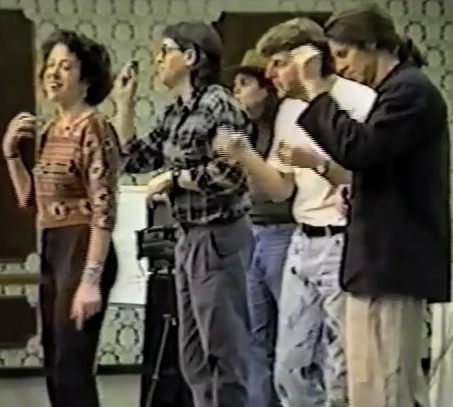Once or twice a week I’ll receive an email from some radio person whom I’ve never met, saying something like:
“Hey, Dan! I’m on the beach. If you know of any good jobs, please send them my way!”
Umm…Yeah. I’ll recommend a complete stranger, rather than someone whom I know and whose work I respect.
A friend of mine (I won’t reveal his identity, but it’s Harlan Hogan) receives at least one email a day that goes something like this:
“I listened to your free teleseminar about How To Record Voice Overs At Home Or On The Road. It was great! Please listen to my demo and let me know what you think…”
or
“…Would you please recommend me to your agent?”
or
“…I’d like to call you up and pick your brain for just a few minutes…”
Again, those messages are from total strangers.
Do I sympathize with a fellow radio person who’s out of work? Sure I do.
If it’s someone I’ve never met, who’s never been a customer of mine, who’s never attended any of my seminars, with whom I’ve never had any contact at all until now, am I going to put aside my own priorities to try to help him get a job? No.
Is that because I’m a selfish bastard? Some readers might think so.
But it’s because I have no relationship with that person.
I know a guy who has more friends than anyone else I know. Not just “contacts” or “connections.” Friends. People who would be happy to do him a favor not because they owe him, but because they like him. And they have a relationship with him.
His name is Joe Polish. Joe is a big shot marketing expert.
Although we’ve (slightly) known each other for years, since the time he interviewed me for his “Genius Network” (yeah, he uses the word “genius” very loosely), we never met in person until a couple of years ago, at a meeting of a secret organization to which we both belong.
I refer to the group as “People Who Think They’re Much More Important Than They Really Are.”
The group includes some really cool, interesting, smart, accomplished individuals. And, of course, a few blowhards whose idea of conversation is to brag to you about how much money they claim to be making.
Whenever I see Joe at these events, I’m impressed with how relaxed he is, how comfortable he is with himself. That makes it easy for others to be comfortable with him, too.
So Where Is This All Leading?
Joe co-hosts a podcast. I want you to go here and download the one entitled “Episode 029: The One About The Magic Rapport Formula.”
You don’t have to opt in to a list or give an email address…Just download the mp3 recording.
Why do Joe and his co-host, Dean Jackson, put out these high value, free podcasts?
Probably because they’re going to do a high priced “I Love Marketing” event, and the podcasts are a good way to build goodwill and attract people who are interested enough to attend. (And, probably, because they enjoying doing the podcasts.)
What’s my ulterior motive for having you download this particular podcast? I ain’t got one. I’m not an “affiliate” for their high-priced event. There’s no commission to be sent my way.
My only possible reward is your listening to the mp3 recording, benefiting from what you hear, and then returning here to post a comment.




